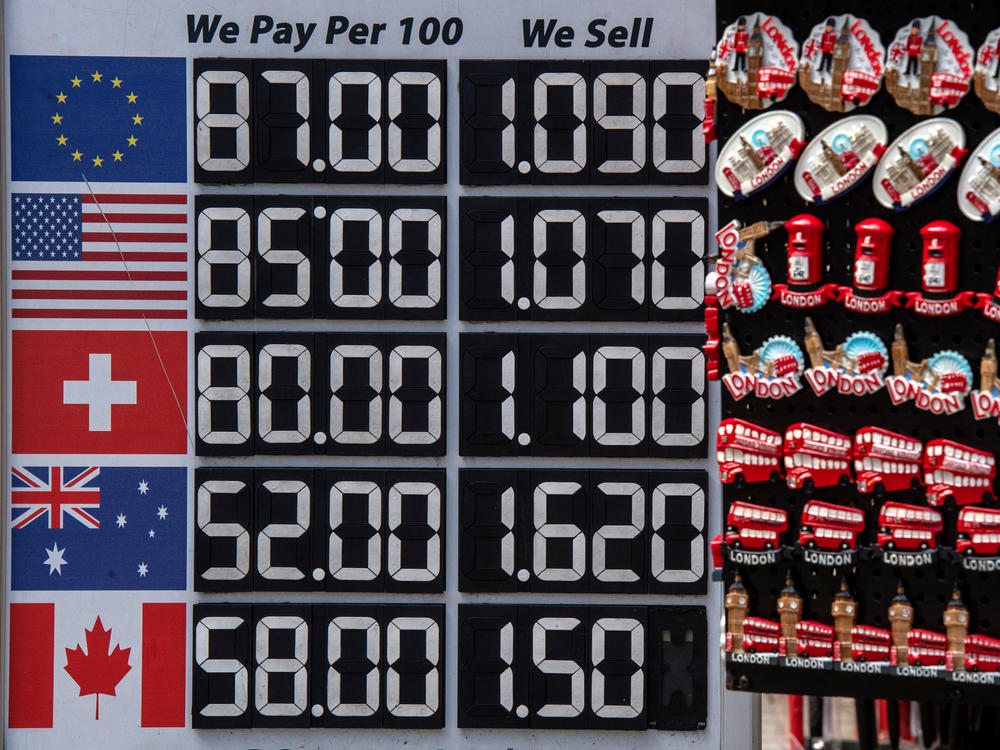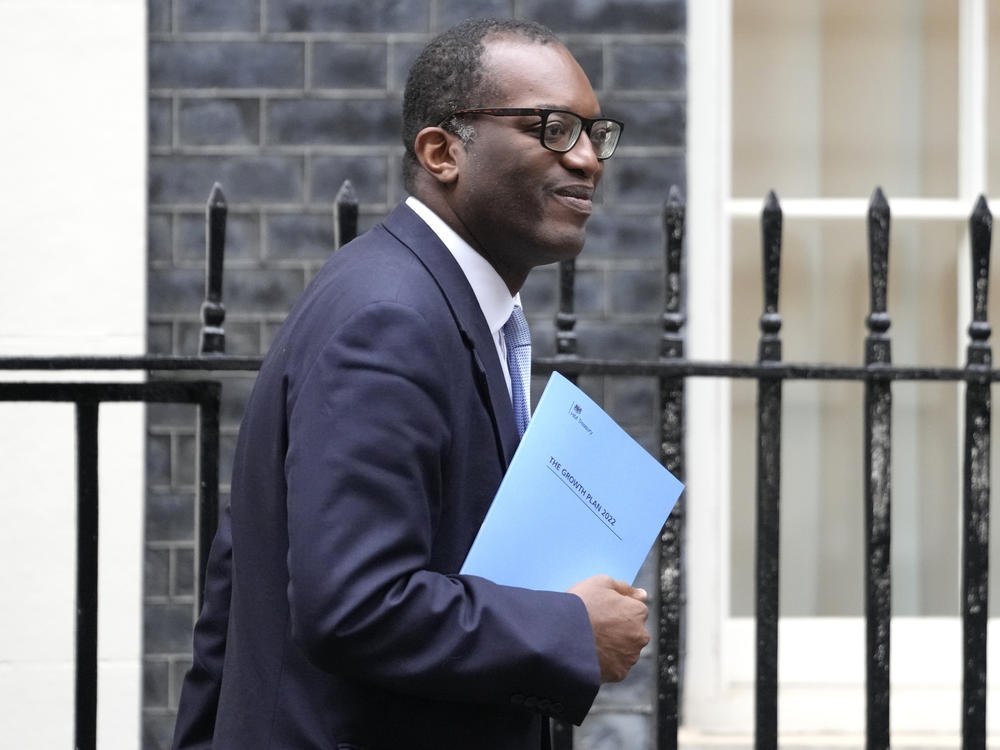Section Branding
Header Content
The British pound hit a record low over fears about income tax cuts and debt
Primary Content
LONDON — The British pound weakened to a record-low level against the U.S. dollar soon after global currency markets opened for the week in Asia on Monday, as traders and investors continue to react negatively to new plans unveiled last week by the United Kingdom's finance minister, Kwasi Kwarteng.
At one point, the pound was trading at just over $1.03, lower than at any time in history, before recovering slightly to about $1.07 — though it remained around its worst levels against the U.S. currency in the past 40 years. In recent weeks, the U.K.'s central bank, the Bank of England, has warned the country may already be in a recession.
Kwarteng, who became chancellor of the Exchequer (Treasury chief) under new Prime Minister Liz Truss this month, addressed Parliament last week promising a new economic era for the U.K. His proposals constituted the largest tax cuts in half a century, while also boosting borrowing to pay for public spending.
Kwarteng said tax cuts for the country's highest earners as well as for businesses would incentivize investment and stimulate the economy, with taxes generated by a larger economy intended to make up any shortfall created by reduced tax revenue.
But even if that does work, economists say, it will not happen overnight.
And the concern among investors, who were surprised by the scale of the tax cuts, is that in order to fill the hole left in the country's tax revenues, the government will have to borrow more from international markets in the short term. As lenders start to consider loans to Britain as riskier, they will demand higher interest rates, and so servicing Britain's debt will become more expensive too.
Another concern prompted by the announcement is the impact on Britain's inflation, which is already close to double digits. A weaker pound will make imports — denominated in overseas currencies like dollars, yuan and euros — more expensive, which will also add to the upward pressure on prices. That is especially true of oil and gas imports, which are all sold in dollars.
Individuals who benefit from tax cuts may have more spending money in their pockets, another potential factor that pushes inflation higher. That could force the country's central bank, the Bank of England, to raise interest rates to stick to its mandate of keeping inflation around 2%.
In the short term, those higher rates may help strengthen the pound by incentivizing investors to buy U.K. assets because of higher returns. But in the long term, higher interest rates will affect British homeowners significantly through increased mortgage payments. They may also discourage people or businesses from borrowing money, which in turn can dampen long-term economic growth.
It is unusual for a finance minister and central bank to be trying to force the same economy in different directions, and the new Conservative government has faced significant criticism from internationally respected economists, as well as the opposition Labour Party.
Labour's spokesperson on finance, Rachel Reeves, has said, "Trickle-down economics isn't the answer." And she accused Kwarteng of "fanning the flames" around the pound's weakness by suggesting in a BBC interview on Sunday that he would introduce further tax cuts in the months ahead.
Copyright 2022 NPR. To see more, visit https://www.npr.org.


